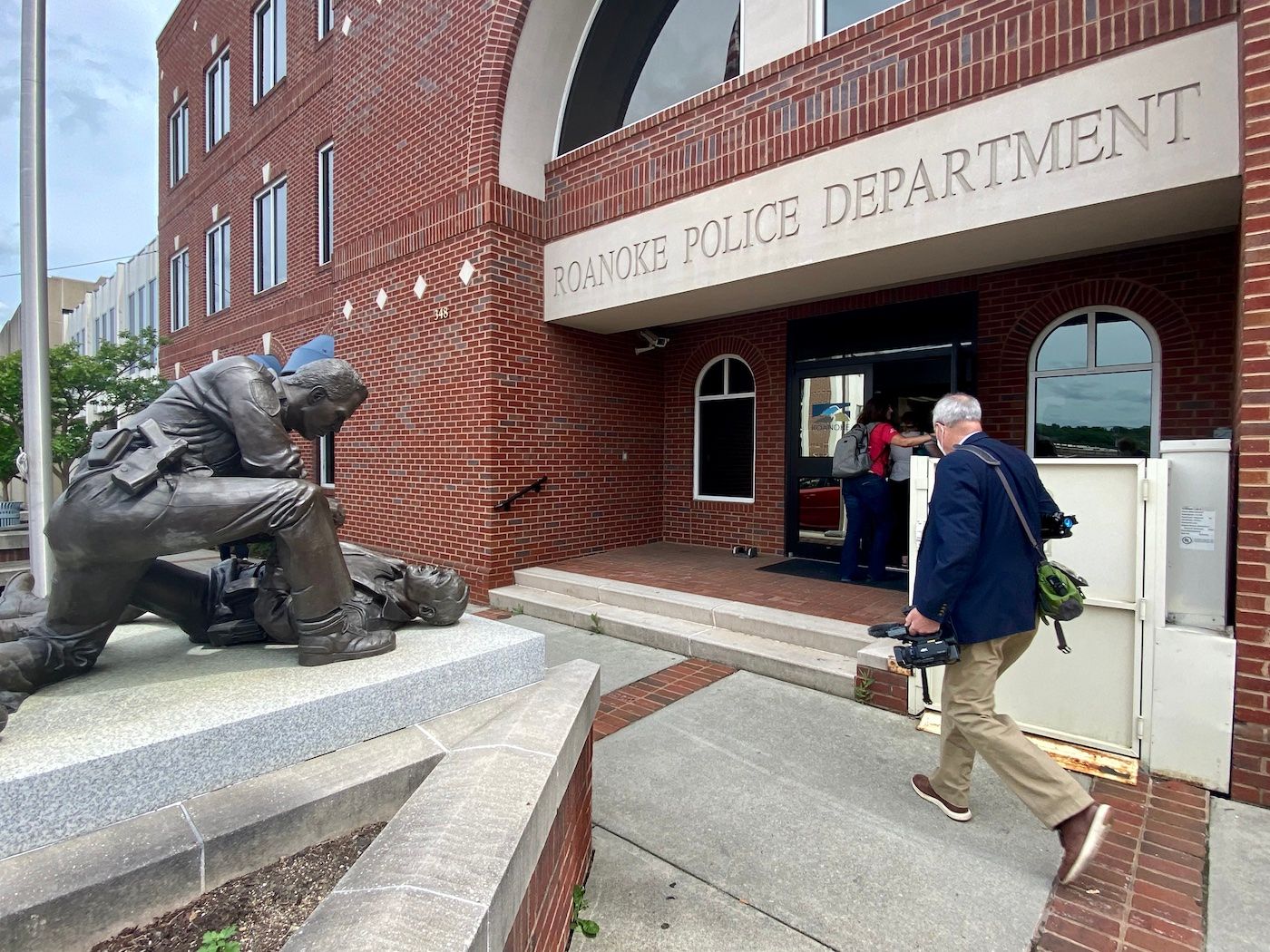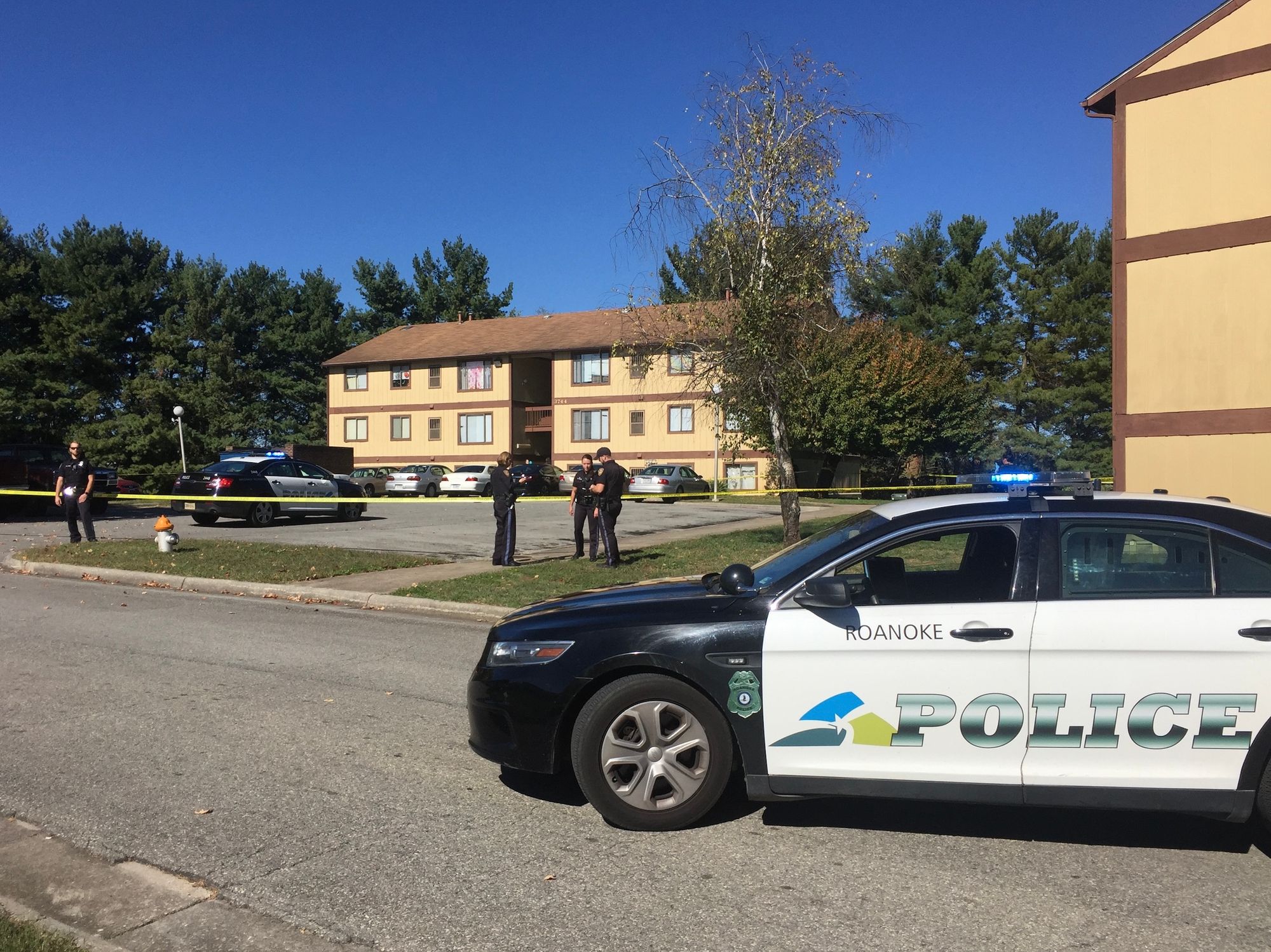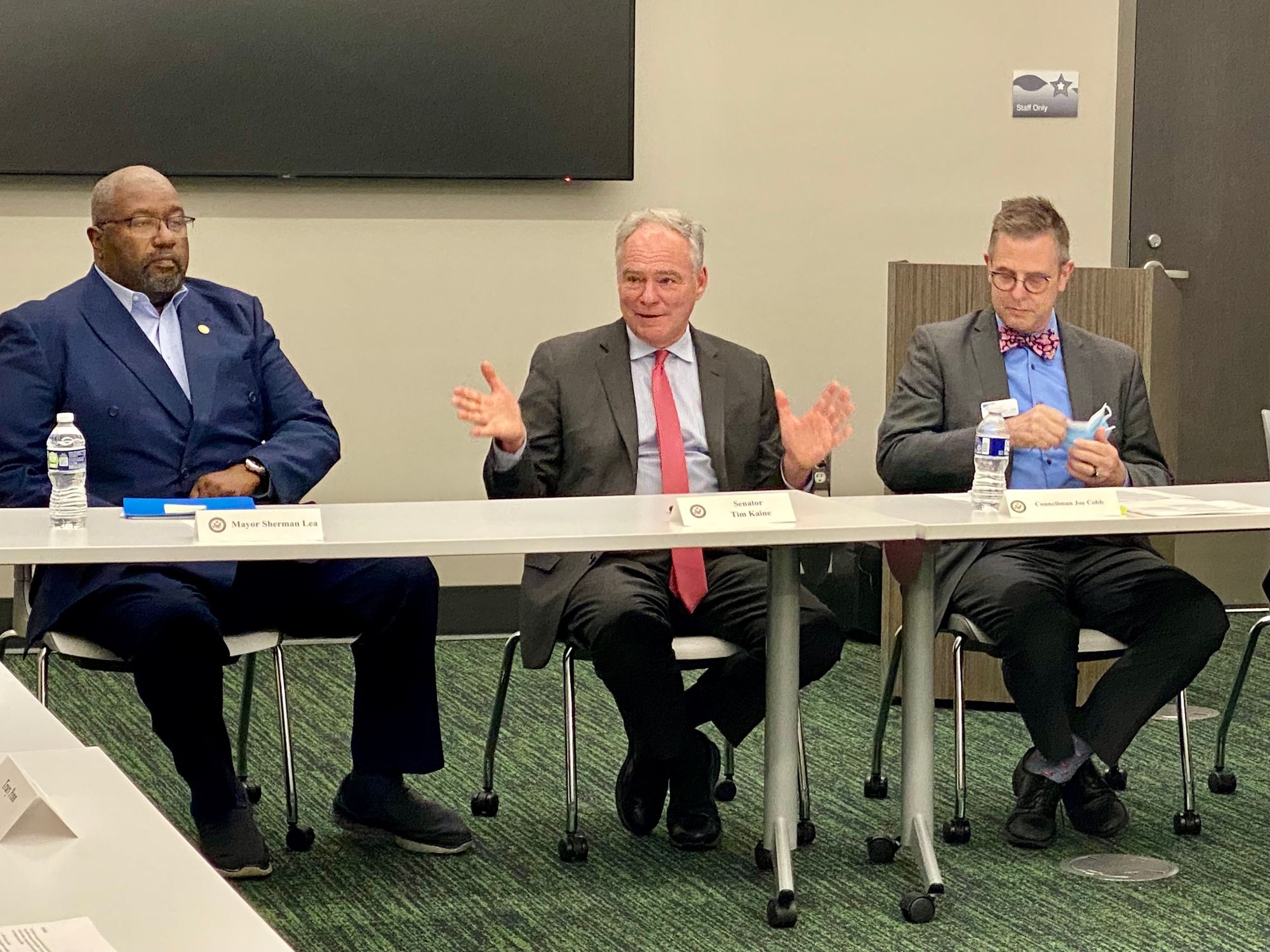Roanoke City Council Urges Virginia Lawmakers To Roll Back Criminal Justice Reforms
Reforms enacted after the 2020 police murder of George Floyd include bans on no-knock warrants and certain traffic stops.

Unanimously and without comment, Roanoke City Council last week urged Virginia to roll back numerous criminal justice reforms enacted after the 2020 police murder of George Floyd.
Council is asking its state representatives to revive the use of no-knock warrants; restore police’s ability to stop drivers for penalties such as having a broken tail light or dark window tints; return the powers of sentencing from judges back to juries; and reinstate a policy that suspects be held without bail for certain, mostly violent, crimes.
The request from Roanoke’s Democratic-dominated Council marks a stark turnaround from the party’s position just a year ago.
In 2020 and 2021, the Democratic-controlled General Assembly passed sweeping laws designed to curb racial profiling and to reduce the number of people held in jails.
But law enforcement maintains the new laws keep them from preventing crime and catching suspects. The inability to stop drivers for some offenses — broken lights, expired registration and tinted windows among them — has hampered police, they say.
“We've just been hearing some concern from our chief and from the department that this has added to their difficulty in being able to enforce, particularly when it intersects with violent criminals,” Councilman Joe Cobb, who chairs the city’s Gun Violence Prevention Commission, said in an interview.
At Council’s request, Roanoke’s police department provided recommendations to reverse some recent reforms. Council last week adopted those verbatim suggestions among its 10 “legislative priorities” for the 2023 General Assembly session. Council has invited area legislators to its meeting Monday to discuss the proposals.
Cobb acknowledged that the city’s Democratic state lawmakers — Del. Sam Rasoul and Sen. John Edwards — are unlikely to carry such a criminal justice bill, based on their public remarks.
“I don't know that they will be, but I'd like for us to find a way to be able to say, you know, ‘This is what we're concerned about, and this is why we're concerned about it,’” Cobb said.

Gun violence and traffic stops
Residents have expressed alarm over a drumbeat of gun violence that has plagued Roanoke.
Gunfire spiked when the pandemic began. While there are early signs the number of shootings may have peaked last year, killings are at a high. There have been 16 homicides by firearm as of mid-November, compared to 15 all of last year and 12 in 2020, according to police data.
Police say they can get guns off the streets by stopping drivers for minor infractions. Such “pretextual” stops can lead officers to search vehicles and seize drugs and illegally owned guns.
Chief Sam Roman has also said a magistrate’s granting of bail to some suspects can create “a narrative of no accountability” for violent crime.
But data on how the reforms have impacted police work are limited.
Since The Rambler asked in late October, Roanoke police could not provide data on how many traffic stops it had typically conducted for certain offenses. As for the request to reinstate no-knock warrants, a department spokeswoman said no senior leaders, whose careers “span multiple decades,” could ever recall the department conducting a high-risk, no-knock warrant.
Roanoke police did stop 11,633 drivers from July 2020 through September 2022, according to data departments must report publicly due to the 2020 Community Policing Act. While Roanoke is 29 percent Black, 42 percent of motorists stopped were Black.
Among 1,367 cases where police searched drivers or passengers, 46 percent of suspects were Black, and in 1,147 cases when police searched the vehicles themselves, 50 percent of drivers were Black.
And in the small number of incidents when an officer and driver scuffled, police seemingly used force against more Black people, even when more white people fought police.
In 29 cases reported in which a suspect used physical force against an officer, 14 suspects were white and 13 were Black, the data show. But in 27 cases listed where an officer used physical force against a driver, 16 drivers were Black and 10 were white.
Asked about these racial disparities, a police spokeswoman provided a statement late Tuesday from Isaac Van Patten, a department criminologist. He said, “disparity is not the same as discrimination,” and that comparing rates to citywide demographics is improper.
“A better benchmark (the one we use) is the racial distribution of bad drivers on the road,” he said. “These are the people we would want cited because they are the most likely to commit infractions. We use an analog for this: the number of drivers in a motor vehicle crash who were cited as ‘at fault’ in the crash. By comparing the number of drivers cited (by race) to this benchmark it will alert us to a disparity (again, not prima facie evidence of racial discrimination).”
He did not say how that benchmark compared to the percentages of drivers stopped by race.
Statewide, police stopped fewer drivers in the wake of the General Assembly’s reforms. But while Virginia’s limit on traffic stops attempted to curb racial profiling, a recent state report found racial disparities still exist.
Brad Haywood, executive director of the criminal justice reform group Justice Forward Virginia, described pretextual traffic stops as “the bread and butter of American policing,” the most common way citizens have contact with police.
“You just got to ask yourself, say you do 100 traffic stops, all of which are total bullshit and 60 percent of them are of Black people, and they know that they're being harassed simply because they're Black,” Haywood said, “and maybe out of 200 [stops] you find one gun. Like, is that really a good use of resources, especially when you are damaging community trust, when you are harming the relationship of Black people in your community?”
One study by a professor at the University of North Carolina at Chapel Hill, analyzed 24 million traffic stops between 2002 to 2020. Police discovered weapons once in every 1,000 stops, the study found.
“You're never going to find, like, really robust data that they're going to give you to demonstrate how this has impacted police work,” said Haywood, a public defender in Arlington County and Falls Church. “You need a lot more than just a police officer complaining about it to change my mind. I really wish policymakers felt that way, too.”

Reactions on City Council
Mayor Sherman Lea said gun violence in Roanoke has reached “crisis” levels, and that the city must “take a look at everything on the table” to try to stem it.
“My concern was that we give our police officers an opportunity to do those things that they feel that protect our society, protect the community,” Lea said in an interview this month in which he reiterated his position that the city should consider tactics such as stop-and-frisk to curb gun violence.
“You know, there was an issue with, you know, stop, search, search and frisk, all those kinds of things. I think in some way we need to get back to that, and I know that's not a popular choice,” Lea said. “But I see first and foremost, my role as mayor is to make sure that our citizens feel safe in their communities, in their homes. And so let’s go where the crimes are being committed.”
Lea’s invocation of stop-and-frisk in September became the topic of question during a City Council candidate forum hosted by residents of Northwest Roanoke. All candidates except for David Bowers, who was not in attendance, said they oppose the use of stop and frisk.
“That’s the difference between campaigning and governing,” Lea said in response. “Governing, I'm responsible. I get the calls from people. They tell me, ‘Mayor, what are we going to do? How are we going to stop this?’ So that pushes me to make sure we're looking at every avenue that we can.”
Lea said such frisks need not be random but target people who have a record of criminal activity, such as people with felonies who are barred from owning firearms.
Cobb says he has not received adequate information from state lawmakers about data and evidence on whether the criminal justice reforms are working. He said, “Is the reform contributing to an overall reduction in crime, or is the reform contributing to the higher rates?”
Asked why Council is advocating to reverse reforms rather than ask for better data collection, Cobb said, “That's a good point, and I find myself kind of wrestling with that.”
One of Council’s proposals is to allow judges “to authorize high-risk no-knock warrants.” The use of such a warrant in the 2020 police killing of Breonna Taylor in Kentucky led Virginia to ban the practice. Members of Taylor’s family stood beside then-Gov. Ralph Northam as he signed the bipartisan “Breonna’s Law” in December 2020.
“I think the key there is ‘high risk’ and being clear on how do we define that?” Cobb said of such warrants. “I think there are situations where that could save some lives and potentially get a violent offender off the streets.”
Vice Mayor Trish White-Boyd said police have pulled her over before for an expired registration.
But she said such stops are “not to be harassing someone,” but to address safety issues. White-Boyd said as chair of the city’s Equity and Empowerment Advisory Board, she is working with a group to implement policies that would not allow police to pull people of color over more so than any other demographic.
“But if you were to pull someone over with a broken light, and there were other things, then certainly you should address those concerns,” she said. “We want the police to do that because we want our streets safe. We want the gun violence to stop.”
White-Boyd did express opposition to the use of no-knock warrants. When asked why Council included that provision among its legislative priorities, White-Boyd said she couldn’t tell the chief how to do his job.
“I don’t agree with no-knock warrants, but I’m not the chief of police,” White-Boyd said. “I would say that could be dangerous, but if the chief is saying that’s what they need to do his enforcement and to help reduce crime, then that would be up to him.”

